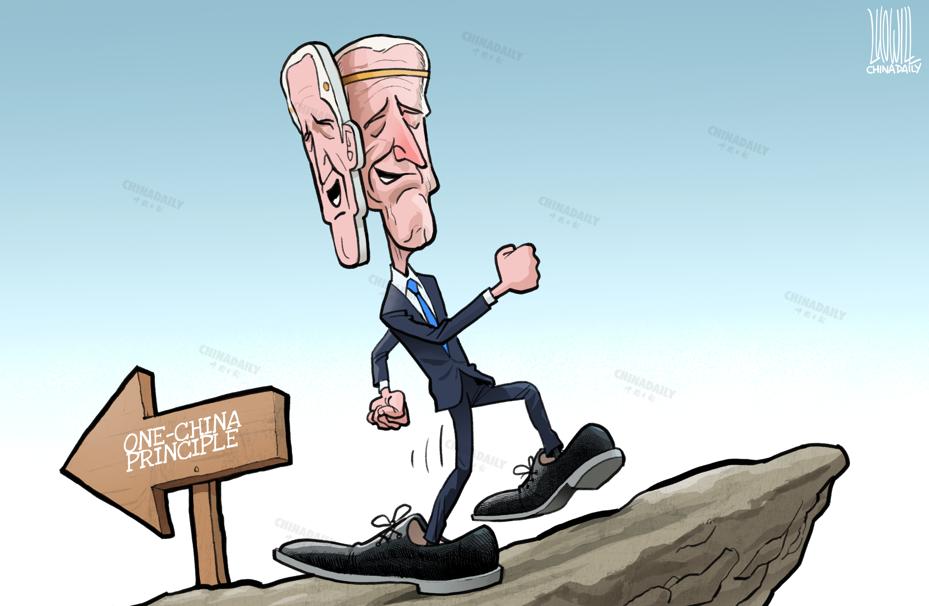China leaves no doubt it will fight to crush 'Taiwan independence': China Daily editorial


In his first face-to-face meeting with his US counterpart, Chinese Defense Minister Wei Fenghe laid bare one critical issue that could make it impossible to avoid confrontation and conflict between the two militaries.
The stern tone came when he met US Secretary of Defense Lloyd Austin on the sidelines of the Shangri-La Dialogue in Singapore on Friday.
Wei took the opportunity of what both sides said were a cordial exchange of views to leave his US counterpart in no doubt that the People's Liberation Army has no choice but to defend China's sovereignty and territorial integrity and it will fight to crush any act of seceding Taiwan from China, whatever the cost, even by going to war.
The strongest-ever warning from the Chinese side apparently demonstrated its indignation at the US' frequent moves to violate the one-China principle and the three China-US joint communiqués, especially with the announcement of the fourth US arms sale to Taiwan on Wednesday since the Joe Biden administration took office.
Washington clearly misjudges the situation if it thinks that China cannot afford to or will dare not engage in a war with the US and its allies.
It should also recognize that if Washington continues its provocative actions of challenging China's red line on the Taiwan question, the possibility of a war will not be ruled out.
It is to be hoped that the meeting will have disabused Washington of any notion that China can be intimidated, as this is the most clear warning the Chinese side has delivered on the growing risks of the US playing the Taiwan card.
Actually, there is more for Washington to do if it wants to establish a stable military-to-military relationship with China.
The US carried out more than 100 military exercises in the South China Sea and nearby waters alone or with its allies last year.
Late last week, Australia and Canada, two enthusiastic supporters of its China-containment strategy, almost simultaneously hyped up "the threat" Chinese fighter jets pose to their close-in reconnaissance missions on China's doorstep.
On June 2, the US Navy disclosed the schedule for the Rim of the Pacific multinational power projection/sea control exercises in which China is cast as the enemy. The theme of RIMPAC 2022 is "capable, adaptive, partners".
These partners include Australia and the United Kingdom which have formed a trilateral security partnership with the US, whose first initiative has been to support Australia acquiring nuclear-powered submarines, an objective that has been accelerated after US President Joe Biden wrapped up his first trip to Asia late last month.
Australia and the US also strengthened their collaborative resolve to contain China along with India and Japan at the Quad summit in Tokyo that Biden attended.
Japan is also drawing up a new defense strategy to fall in line with the "Indo-Pacific Strategy" of the US.
And at its summit in Madrid at the end of this month, NATO is set to adopt its latest Strategic Concept that posits China as a challenge for the transatlantic alliance for the first time, paving the way for the organization's expansion into the Asia-Pacific.
All these means good China-US relations will not be achieved unless Washington forgoes its strategy to contain China and treats its development with a rational perspective.































